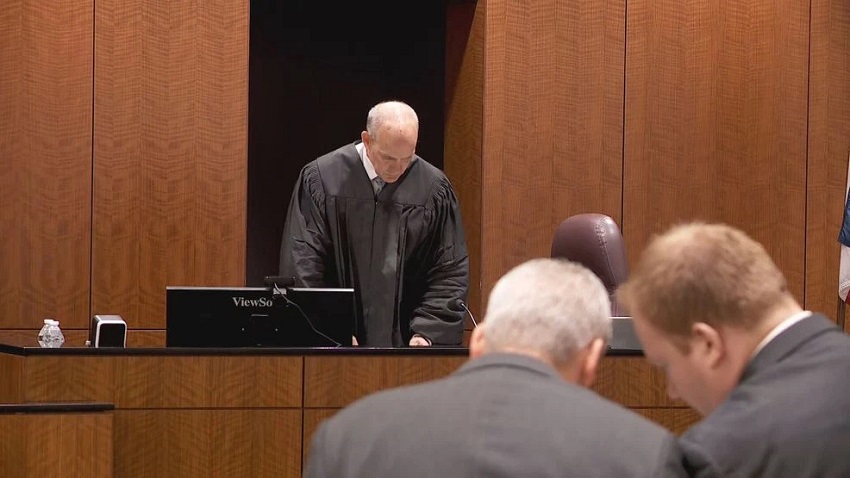Ogden, Utah — Kent Cody Barlow, a man accused of depraved indifference murder in the deaths of two young children, was back in court Thursday as a judge ruled to allow limited evidence from one of his previous convictions to be presented to jurors. The ruling came as part of ongoing proceedings in Barlow’s trial, where he faces charges related to the fatal crash that took the lives of three-year-olds Hunter Jackson and Odin Ratliff in May 2022.
The children died when Barlow, reportedly high on methamphetamine, crashed his vehicle at speeds of approximately 120 mph into a stable where the boys were playing. The incident occurred in a rural area, and according to reports, Barlow’s defense team does not contest the facts of the crash itself. Instead, the defense argues that Barlow was unaware that children were present at the scene, suggesting that he should be convicted of a lesser charge, such as manslaughter or automobile homicide.
However, prosecutors maintain that Barlow’s actions were deliberate and reckless. In support of their case, they sought to introduce evidence from Barlow’s prior conviction in 2019. That conviction stemmed from an incident in which Barlow, under the influence of methamphetamine, led law enforcement on a high-speed chase through populated areas in a stolen police vehicle. During sentencing for the 2019 crime, Barlow acknowledged the dangers of driving while impaired at high speeds, a statement prosecutors now point to as evidence that Barlow understood the potential consequences of his reckless behavior.
Judge Derek Pullan ruled to allow the prior conviction evidence, but with limitations on how it can be presented to jurors. The decision was seen as a critical moment in the case, as it could influence how the jury perceives Barlow’s state of mind and his awareness of the risks associated with his actions on the day of the fatal crash.
The prosecution is building its case on the argument that Barlow acted with depraved indifference to human life, a key element in securing a murder conviction. They argue that his actions, while potentially influenced by drug use, still demonstrated a disregard for the safety of others—particularly in the context of his prior acknowledgment of the dangers associated with high-speed driving while impaired.
In contrast, the defense maintains that Barlow’s state of mind at the time of the crash was not one of intentional malice or recklessness toward the children. His attorneys have pointed out that the location of the crash—near a stable—would not have led Barlow to expect the presence of children, as it was a place typically occupied by animals rather than people.
As the trial progresses, the introduction of Barlow’s past behavior will likely play a central role in how the jury evaluates his culpability in the deaths of Hunter Jackson and Odin Ratliff. The legal battle is poised to test whether the defendant’s prior actions and statements will be enough to convince a jury that he should be held accountable for murder or whether a lesser charge is more appropriate given the circumstances.
Barlow remains in custody as the trial moves forward, with the next steps in the legal process anticipated in the coming weeks.

